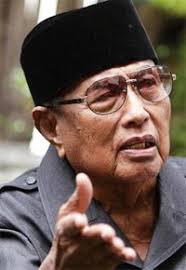The Sabah claim of the Philippines should be upheld and pursued peacefully. I am against any military or even irresponsible verbal posturings on the current Sabah crisis with our Asean neighbor Malaysia, but let us vigorously, civilly and diplomatically pursue our Sanah claim.
Though I disagree with his sending armed men to Sabah, I support the public appeal of Sulu Sultan Jamalul Kiram III that the Sabah claim should be addressed and resolved by both Malaysia and the Philippines.
Are our political leaders afraid to upset Malaysia? Is this possible fear due to no support from the West on our Sabah claim, since it's the fault of Britain for illegally giving leased Sabah to its former colony Malaysia?
(Image of Lease Agreement between Sulu Sultan and British over Sabah, sourced from interaksyon.com)

(Image below of Sabah sourced from sabah.edu.my)

Click below to read Ateneo Law School Prof. Mel Sta. Maria opinion piece in interaksyon.com on why the Philippines legally and rightfully owns Sabah, which was illegally given by Britain to Malaysia.
http://www.interaksyon.com/article/55753/mel-sta-maria--sabah-is-ours--we-should-claim-it
(Image below of the Sultan of Sulu Jamalul Kiram III , who historically owns Sabah. Photo sourced from malaysia-today.net)

(Sulu Sultan Jamalul Kiram III image below sourced from gmanetwork.com)

Why the silence of our many politicos in the Philippines on the Sabah claim but a lot of noises on our other territorial claims? I think only former presidents Marcos and Macapagal had the guts to pursue our Sabah claim unequivocably.
(President Ferdinand Marcos image below sourced from © Bettmann/CORBIS)

(President Ferdinand Marcos image below sourced from en.wikipedia.com)

(Image below of President Diosdado Macapagal sourced from www-bcf.usc.edu)

Why not file an arbitration case in the United Nations (UN) now in order to encourage the Sulu Sultan's armed men to stand down and not cause bloodshed in the on-going crisis?
On February 22, 2013, the New Straits Times published this editorial which should hopefully remind our Philippine leaders that being too meek and seemingly scared of angering Malaysia can only forever weaken our rightful historic and legal claim on Sabah:
Though I disagree with his sending armed men to Sabah, I support the public appeal of Sulu Sultan Jamalul Kiram III that the Sabah claim should be addressed and resolved by both Malaysia and the Philippines.
Are our political leaders afraid to upset Malaysia? Is this possible fear due to no support from the West on our Sabah claim, since it's the fault of Britain for illegally giving leased Sabah to its former colony Malaysia?
(Image of Lease Agreement between Sulu Sultan and British over Sabah, sourced from interaksyon.com)
(Image below of Sabah sourced from sabah.edu.my)
Click below to read Ateneo Law School Prof. Mel Sta. Maria opinion piece in interaksyon.com on why the Philippines legally and rightfully owns Sabah, which was illegally given by Britain to Malaysia.
http://www.interaksyon.com/article/55753/mel-sta-maria--sabah-is-ours--we-should-claim-it
(Image below of the Sultan of Sulu Jamalul Kiram III , who historically owns Sabah. Photo sourced from malaysia-today.net)
(Sulu Sultan Jamalul Kiram III image below sourced from gmanetwork.com)
Why the silence of our many politicos in the Philippines on the Sabah claim but a lot of noises on our other territorial claims? I think only former presidents Marcos and Macapagal had the guts to pursue our Sabah claim unequivocably.
(President Ferdinand Marcos image below sourced from © Bettmann/CORBIS)

(President Ferdinand Marcos image below sourced from en.wikipedia.com)
(Image below of President Diosdado Macapagal sourced from www-bcf.usc.edu)
Why not file an arbitration case in the United Nations (UN) now in order to encourage the Sulu Sultan's armed men to stand down and not cause bloodshed in the on-going crisis?
***
On February 22, 2013, the New Straits Times published this editorial which should hopefully remind our Philippine leaders that being too meek and seemingly scared of angering Malaysia can only forever weaken our rightful historic and legal claim on Sabah:
No comments:
Post a Comment